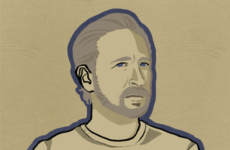
More than 1,000 people in mainland China have died from the coronavirus. Researchers are working to develop a vaccine, but the process could take years. Photo courtesy of The New York Times
Lunar New Year, corresponding to the cycle of the moon, is the most festive holiday of the year in China. The 2020 Lunar New Year will be one of the most memorable holidays for my generation, not because of its festivity but because of the plague that has cast a shadow over the country — the coronavirus.
Although living in a country half a world away largely reduces the concern of getting infected, the outbreak of the disease has still profoundly affected every aspect of my daily life.
In mid-January, though, I didn’t yet know how much coronavirus would impact my life. There were a few reports about the new virus then; still, everyone was looking forward to the upcoming Lunar holiday, so few people paid attention to the precautionary tips. It wasn’t until January 20 that articles on the new virus started to dominate media and news headlines. I wasn’t too concerned about these reports until my mother told me to order some medical face masks for my family because they had sold out in China. A few days later, they were out of stock in the U.S. too. The panic spread rapidly as quarantine zones were put in place and all public transportation from Wuhan was stopped. Unfortunately, it was too late, and people who were infected but without symptoms were already across the country.
My city, Shanghai, is a nine-hour drive from Wuhan, and its leaders responded to the outbreak with utmost urgency. Most of the public facilities were closed, and all the stores, restaurants, and theaters have been shut down. I video chat with my family every day, and they’ve shared that Shanghai is the quietest they’ve ever seen it. My grandparents have not gone outside in ten days, and it seems that the entire city is in a slumber.
After the World Health Organization declared the virus a Public Health Emergency of International Concern, many countries around the globe closed their borders and banned Chinese visitors from entering the country. Many airlines also canceled all flights to China until late April. These measures are understandable and necessary to contain the disease. However, in regions without modern and fair media coverage, there have been voices criticizing the Chinese government for being incompetent in dealing with this outbreak. Some more radical views have used this event to empower their Sinophobia. For instance, theWall Street Journal published an article on February 3 headlined “China Is the Real Sick Man of Asia” and a Sydney Daily Telegraph published another titled, “China Kids Stay Home.” The virus is not related to ethnicity, so naming it the “Chinese virus” is discriminatory. No one calls “Vache Folle” the “virus européen” or “virus français.” At an urgent time like this, it is critical to ensure that all humans are on the same side, and to foster a united global effort in combating the disease.
To be sure, there have been countless heartwarming moments that reflect the innate kindness of humanity. Japan, a country that typically has a tense relationship with China, donated more than a million medical masks to China. There have also been billboards supporting the global effort in fighting the disease in many countries, as well as movements in Florence, Italy, offering hugs to Asian people to soothe anti-Asian sentiment.
Although nations are always in constant economic conflict and warfare against one another, humanity is what always brings people together at a time like this. Building a community with a shared future for humankind is the kind of spirit we all need.




